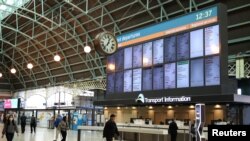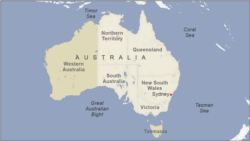South Australia has become the first state in the country to relax its border controls imposed to contain the COVID-19 pandemic. From Wednesday, travellers from Western Australia, the Northern Territory and Tasmania are allowed to enter South Australia without going into quarantine. Australia has had 7,300 confirmed coronavirus cases. 102 people have died.
South Australia closed its borders to other parts of the country in March when the COVID-19 crisis was intensifying. It was an attempt to stop the spread of the disease.
The state of 1.7 million people has not had a new infection for three weeks, and authorities have reopened internal borders with neighboring Western Australia and the Northern Territory, along with the island of Tasmania. However, they remain closed to the two most populous states — New South Wales and Victoria — which have had the bulk of Australia’s confirmed new coronavirus cases. Those borders are expected to be opened in late July.
“We have lifted the restriction at midnight on anybody coming in from [the] Northern Territory, Western Australia or Tasmania. This means we will no longer be requiring them to do fourteen days of self-isolation,” said South Australian premier Steven Marshall.
There is, though, frustration that travel into South Australia is only one-way.
Other Australian jurisdictions have yet to reopen their borders. Western Australia says it will do so when health officials say it is safe.
Jobs are a key reason why state leaders want Australia’s federated system to be fully reopened. National unemployment figures will be released Thursday, and are expected to reflect the dire economic consequences of lockdown measures, which have helped Australia contain COVID-19. The federal government has consistently argued for all internal borders to reopen but has met with resistance from state authorities.
From Friday, public gatherings of up to 300 people will be allowed in South Australia as disease controls continue to be wound back.
Australia’s international borders are expected to remain closed for weeks, if not months.





